What a Mediterranean Diet Is
The Mediterranean Diet has its roots in the countries that surround the Mediterranean Sea, like Italy, Spain, Greece, and Morocco. The Mediterranean regime is more like a lifestyle that goes beyond food. It strongly focuses on the flavor and pleasure at the table. If this way of life is something you’re curious about, then 5-Minute Crafts will highlight the best bits of the Mediterranean diet below.
⚠️Readers must consult their doctor first before following this diet. This article is for informative purposes only.
Benefits of a Mediterranean diet:
1. It assists in weight loss.
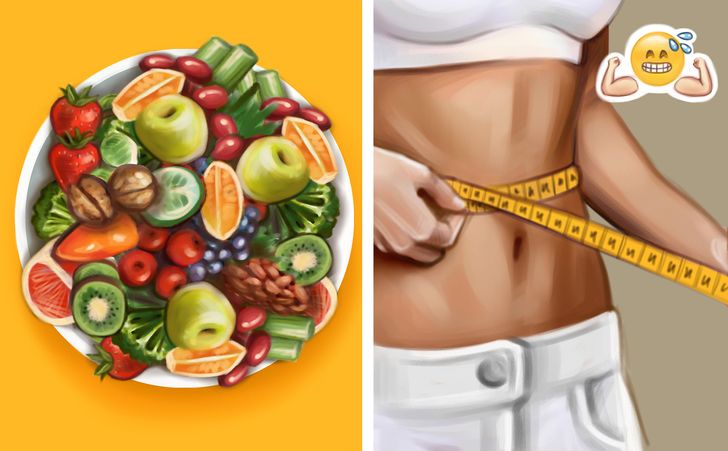
The basics of the Mediterranean diet are more than enough to keep you feeling full and satisfied. And, in this way, it also helps you stay consistent with the diet. Include regular exercise to make the most of this lifestyle.
2. It’s good for your heart.
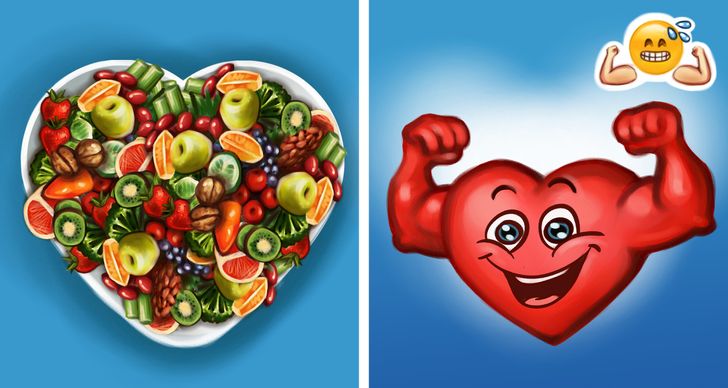
Nuts and olive oil are super helpful in fighting bad cholesterol. Foods like fruits, veggies, and beans keep your arteries clear and fish lowers triglycerides and blood pressure. No matter what part of the Mediterranean diet you try, your heart will thank you for it.
- Triglycerides are a type of fat found in your blood. After eating, your body converts unused calories into triglycerides. These are stored in your fat cells.
3. These meals are easy to make.
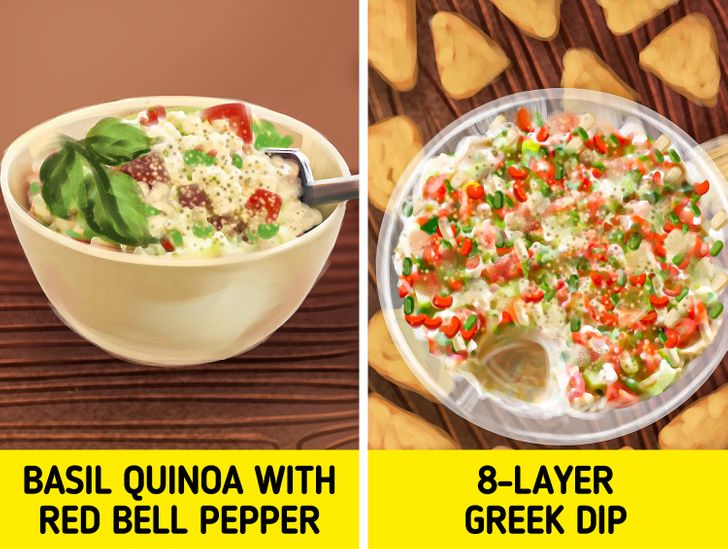
When it comes to Greek meals, they are usually small and are served as easy-to-assemble plates known as mezzes. If you want a casual serve-it-cold meal, you can simply put out plates of cheese, olives, and nuts. You can try healthy recipes like Basil Quinoa With Red Bell Pepper and 8-Layer Greek Dip to make the most of this diet.
4. This diet is loaded with healthy fats.
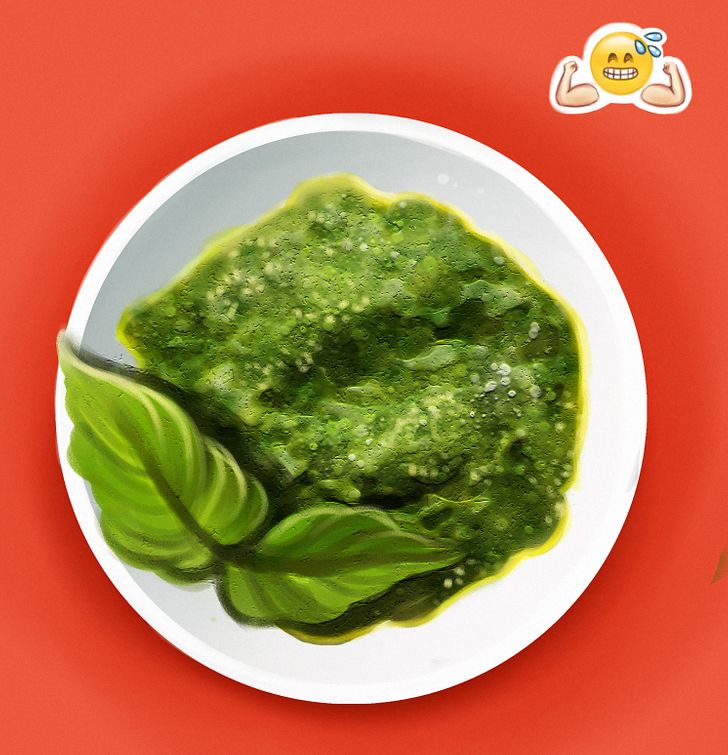
These healthy fats can be found in nuts, olives, and olive oil. These fats help in adding flavor and building strength to fight diseases (from diabetes to cancer). Make sure to add a Basic Basil Pesto to your diet.
What to eat when on a Mediterranean diet:
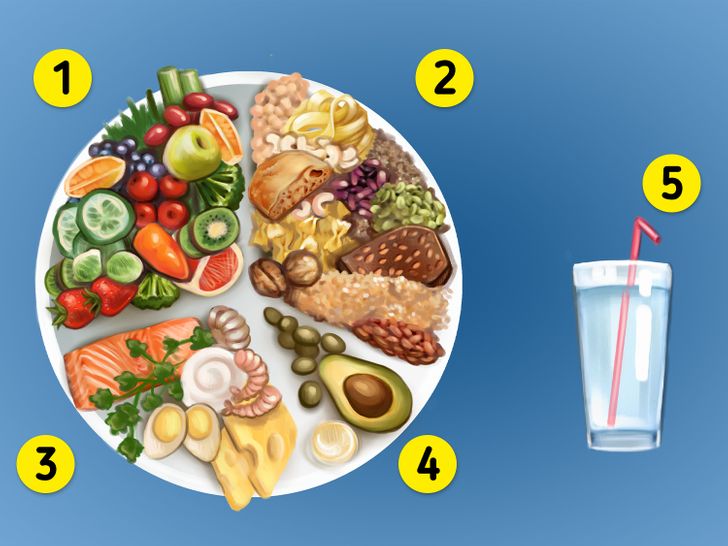
The Mediterranean diet is high in plant foods and low in animal foods, but consuming fish and seafood twice a week is highly recommended. Here are some unprocessed foods that must be included in the Mediterranean diet:
Veggies (tomatoes, cucumbers, broccoli, Brussels sprouts, kale, carrots, onions, cauliflower, potatoes, sweet potatoes, turnips, yams, etc.) and fruits (apples, peaches, bananas, melons, oranges, figs, pears, dates, strawberries, grapes, etc.)
Nuts and seeds (almonds, pumpkin seeds, walnuts, sunflower seeds, macadamia nuts, cashews, hazelnuts, etc.), whole grains (whole oats, pasta, brown rice, whole-grain bread, rye, whole wheat, buckwheat, barley, and corn.)
Non-vegetarian foods (salmon, mussels, sardines, crab, trout, clams, tuna, oysters, mackerel, shrimp, chicken, duck, turkey, quail, and duck eggs), dairy (cheese, yogurt, Greek yogurt, etc.), herbs and spices (garlic, pepper, basil, cinnamon, mint, rosemary, nutmeg, sage, etc.)
Healthy fats (extra virgin olive oil, olives, avocados, and avocado oil).
It is also recommended that you keep yourself hydrated at all times, so never skimp on a glass of water every now and then.
What not to eat when on the Mediterranean Diet:
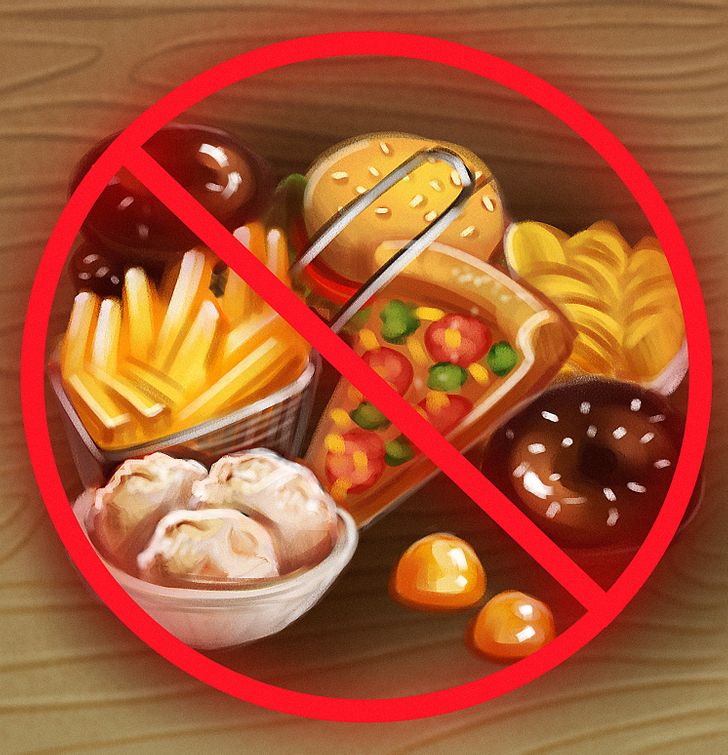
Here are the foods you must not consume when eating Mediterranean cuisine:
🚫 Added sugar: Soda, candy, ice cream, sugar, etc.
🚫 Refined grains: White bread, refined wheat pasta, etc.
🚫 Trans fats: Margarine, processed foods, etc.
🚫 Refined oils: Soybean oil, cottonseed oil, canola oil, etc.
🚫 Processed meat: Processed sausages, hot dogs, etc.
🚫 Highly processed foods: Food with labels like “low-fat” or “diet,” or any factory-made processed foods, etc.